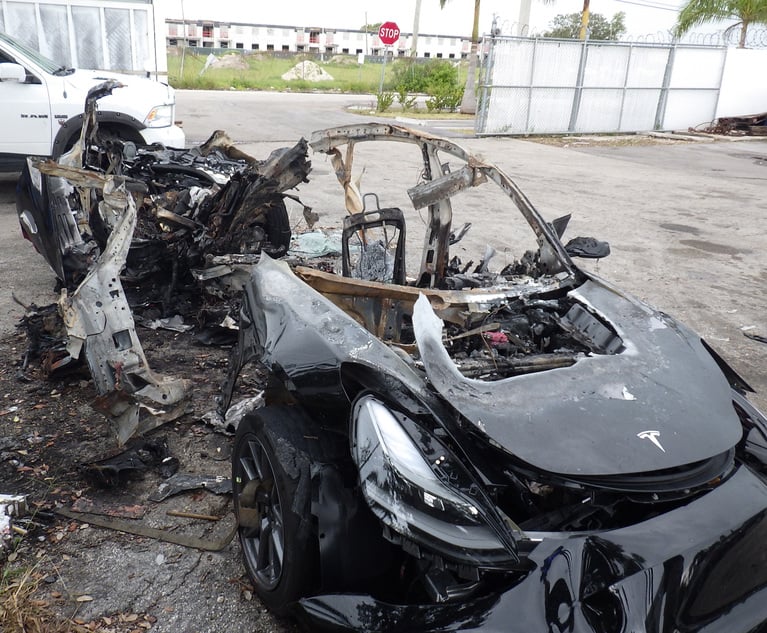Insurance associations are welcoming the Senate's introductionof a TRIA extension, but some industry officials are concernedabout language in the bill.
|The Property Casualty Insurers Association of America (PCI) andthe National Association of Mutual Insurance Companies (NAMIC) arevoicing concern about a provision in S. 2244 that would raise thedeductible for insurers from a catastrophic attack by 33% for eachcompany.
|Moreover, Willis North America said in a statement that whilethe introduction of the bill is a "positive development," itdoesn't lessen the disruption in the market because concern remainsthat the House won't act promptly to support the Senate bill.
|The Senate bill was introduced with nine co-sponsors Thursday.It would raise the deductible insurers must pay before the federalgovernment from the current $27.5 billion to $37.5 billion overfive years. Another change is to reduce the total amount thefederal government will cover from the current 85% to 80% over thesame five-year period.
|PCI officials "applauded" introduction of the Senate bill andNAMIC officials "welcomed" it.
|At the same, the deductible and co-pay-issues remains a concern.PCI senior vice president, federal government relations, NatWienecke, said he is concerned about the Senate's proposal toincrease each insurer's co-share by a third, from 15% to 20%, "andthe impact this will have on the availability and affordability ofterrorism insurance for consumers."
|He adds, "Insurers are already being required under TRIA toprovide terrorism coverage that goes well beyond their normal losstolerance," and increasing the co-share "will further undermineeconomic resiliency."
|Wienecke said the U.S. economy and the insurance markets areespecially vulnerable to attacks involving nuclear, biological,chemical and radiological (NBCR) weapons, and that insuring againstNBCR "is essentially trying to cover the failure of the governmentto interdict a war-like attack against our country.
|"What available insurance protection is available for NBCR willbecome increasingly unstable if TRIA's coverage is narrowed,"Wienecke said.
|Jimi Grande, NAMIC senior vice president of federal andpolitical affairs, agreed.
|Grande said the program was designed to soften the economic blowof a catastrophic terrorism attack by providing insurers with adegree of certainty regarding their immediate losses, "but theco-payment increase runs counter to that thinking.
|"Given the unpredictable and adaptable element of terrorism,along with a lack of information due to national-security concerns,terrorism risk is virtually impossible for insurers to measure,"Grande said. He added that lenders require coverage, but withoutthe program the marketplace for terrorism insurance would shrink,bringing development to a halt.
|"This program has and continues to work well, at virtually nocost to the taxpayer," Grande said. "The Senate is right to extendthe program for the long term, but we strongly urge them toreconsider the changes to the co-payment provision."
|Wendy A. Peters, Willis senior vicepresident, North America, called the Senate bill "apositive step forward" because it indicates bi-partisan support,and added that, "it is encouraging to see the Senate finally focuson this important issue."
|However, Peters said, "it does not preclude thepossibility of further delays by the House of Representatives, whohave been more vocal in their opposition" to extending the currentreauthorization legislation.
|Peters said Willis North American does not expect introductionof the Senate bill to have a significant impact on the market,because the disruption caused by the ongoing uncertainty toreauthorization persists, and carriers have already begunresponding with the imposition of sunset clauses or otherpolicy limitations as of renewal.
|"Policyholders are well advised to be proactive in evaluatingcurrent terrorism purchasing requirements and making certain that,insurance purchased will address minimum requirements for loanagreements and statutory requirements," Peters said.
|In applauding introduction of the Senate bill, Martin DePoy, aspokesperson for the Coalition to Insure Against Terrorism, said,"TRIA cannot stop a terrorist attack, but it can undermine thegoals of terrorists by providing a means for U.S. businesses andthe economy to recover more quickly in the event of an attack."
|
Want to continue reading?
Become a Free PropertyCasualty360 Digital Reader
Your access to unlimited PropertyCasualty360 content isn’t changing.
Once you are an ALM digital member, you’ll receive:
- All PropertyCasualty360.com news coverage, best practices, and in-depth analysis.
- Educational webcasts, resources from industry leaders, and informative newsletters.
- Other award-winning websites including BenefitsPRO.com and ThinkAdvisor.com.
Already have an account? Sign In
© 2024 ALM Global, LLC, All Rights Reserved. Request academic re-use from www.copyright.com. All other uses, submit a request to [email protected]. For more information visit Asset & Logo Licensing.








